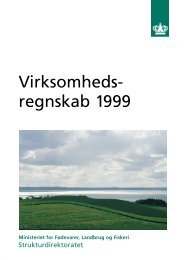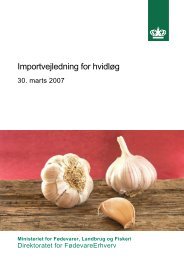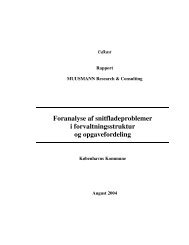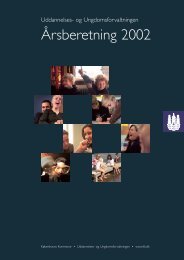instance, some recipients may realize very well that aid coordination will demand greater justification of their aid requests. Besides, there are doubts on the side of donors as to whether the demand for aid coordination really is strong. Aid conditionality Aid conditionalities have been more donor-driven than a product of discussions and agreement between recipients and donors as partners in development. Tanzania has sometimes implemented conditionalities with reluctance and a low level of commitment. This shortcoming has tended to limit the realization of aid objectives, thus limiting its aid effectiveness. The major problem with an unequal relationship in aid conditionality is that it does not bind both partners in a collaborative arrangement, Aid accountability and transparency Aid accountability in Tanzania, particularly in areas of record-keeping, reporting, accounting and auditing is limited by weak institutional capacity. On the donor side, agencies which provide aid in the form of direct-funding, including Danida, normally do not submit their books to the CAG (den tanzanianske rigsrevisor) for auditing. Accountability and transparency in aid deployment have been asymmetrical, with a low demand for accountability by the recipient from within its own political constituency. In addition, the donor has not been sufficiently accountable to the recipient for the outcome of aid. These conditions may have reduced the effectiveness of aid.” 160
6: Litteraturliste Titler på bøger, artikler, rapporter m.m., som der er blevet trukket på, men som ikke er specificeret i tekstafsnittene Ad I The Economic Development of Tanganyika, Report of a Mission organized by The International Bank for Reconstruction and Development at the request of The Government of Tanganyika and the United Kingdom, Baltimore, 1961. van Arkadie, B.: Import Substitution and Export Promotion as Aid to Import Substitution in East Africa, The East African Economic Review, Vol 1, New Series, 1964. Theroux, P.: Tarzan is an Expatriate, Transition, nr. 32, vol. 7, Kampala, 1967. Mølgård Andersen, O.: Udviklingen af en afrikansk eksportøkonomi – Træk af Tanzanias økonomiske historie i kolonitiden, i Økonomi og Politik, side 171-95, 1968, København. Iliffe, J.: Tanganyika under German Rule 1905-12, Nairobi, 1969. Svendsen, K.E., og Teisen, M. (eds): Self-Reliant Tanzania, Dar es Salaam, 1969. Skarstein, R. og Wangwe, S.: Industrial Development in Tanzania, Uppsala og Dar es Salaam, 1986. World Bank/Tanzania Relations 1961-87, Operations Evaluation Department, World Bank, Washington DC, 1990. van Arkadie, B.: Economic Strategy and Structural Adjustment in Tanzania, Occasional Paper No. 18, Private Sector Department, World Bank Washington .DC, 1995. Warioba, J.S.: Framework to Adress Corruption, prepared for Global Coalition for Africa Meeting, Dar es Salaam / Washington DC, 1998. Bigsten, A., Mutalewa, D., Tsikata, Y., Wangwe, S.: Aid and Reform in Tanzania, Gøteborg og Dar es Salaam, 1999 (Bidrag til Verdensbankstudiet: Aid and Reform in Africa). Ad II Jørgensen, K.: Hjælp fra Danmark – En studie i dansk u-landspolitik 1960-71, Odense Universitetsforlag, 1977. Tanzania 30 år efter Arusha-erklæringen, Særnummer af Udenrigsministeriets tidsskrift, Udvikling, nr. 10/96-1/97. Tarp, F. (ed.): Foreign Aid and Development, Routledge, London and New York, 2000. Catterson, J., Lindahl, C.: The Sustainability Enigma. Aid Dependency and The Phasing Out of Projects. The Case of Swedish Aid to Tanzania, Expert Group on Development Issues, Stockholm, 1999. 161
- Page 1:
Tanzanias og Danmarks udviklingssam
- Page 4 and 5:
Some people aim at the moon. We aim
- Page 6 and 7:
Forord Tanzania var det første lan
- Page 8 and 9:
nologisk sammenfatning af det dansk
- Page 10 and 11:
1: Træk af Tanzanias politiskøkon
- Page 12 and 13:
Foruden at finansiere koloniadminis
- Page 14 and 15:
om end en voksende modstand mod kol
- Page 16 and 17:
viklingen stod i skærende misforho
- Page 18 and 19:
Valg under étpartisystemet Valget
- Page 20 and 21:
på, at økonomisk udvikling eller
- Page 22 and 23:
til at blive og fortsætte på dere
- Page 24 and 25:
ningssystemet, udgjorde kristendoms
- Page 26 and 27:
B. Reformperioden 1970-86: Frem- og
- Page 28 and 29:
Commissioners - en blanding af embe
- Page 30 and 31:
Traktorpløjning var ikke den optim
- Page 32 and 33:
Det var ikke kun Verdensbanken og d
- Page 34 and 35:
mellem rige og fattige regioner. De
- Page 36 and 37:
Friendship-tekstilfabrikken blev op
- Page 38 and 39:
ning som forudsætningen for indust
- Page 40 and 41:
udgetundersøgelser, nationalindkom
- Page 42 and 43:
(SAP), som skulle gælde i en treå
- Page 44 and 45:
Verdensbanken i formandsstolen og I
- Page 46 and 47:
producentpriser til bønderne, burd
- Page 48 and 49:
auer og private banksteder som led
- Page 50 and 51:
tre forskellige perioder: henholdsv
- Page 52 and 53:
mere end halverede deres realløn p
- Page 54 and 55:
te sig med andre ord, at der ikke v
- Page 56 and 57:
Med forbudet mod at appellere til v
- Page 58 and 59:
kontrakter finansieret over bistand
- Page 60 and 61:
Det bemærkes, at forskellene i mod
- Page 62 and 63:
Det nye universitet modtog fra star
- Page 64 and 65:
Danida støttede i flere tilfælde
- Page 66 and 67:
C. Tilpasninger af den danske bista
- Page 68 and 69:
leverancer fra Danmark. Disse indk
- Page 70 and 71:
men med kalenderåret) meddeles det
- Page 72 and 73:
program i 1967/68 og indtil ti år
- Page 74 and 75:
Støtten gennem SADCC Tanzanias akt
- Page 76 and 77:
tanzanianske shillings, hvis anvend
- Page 78 and 79:
forhold til de mange forskelligarte
- Page 80 and 81:
D. Nye prioriteringer i bistanden V
- Page 82 and 83:
afvikling af valuta- og importrestr
- Page 84 and 85:
Fokus på miljøet I disse år blev
- Page 86 and 87:
Omlægningen af bistanden fik umidd
- Page 88 and 89:
Den danske demokratistøtte I lighe
- Page 90 and 91:
Bomuldskooperativ i arbejde Fremgan
- Page 92 and 93:
Af større betydning for kooperatio
- Page 94 and 95:
i Tanzania, som det vil fremgå af
- Page 96 and 97:
Alle disse mange nære kontakter og
- Page 98 and 99:
skulle stabiliseres på et niveau o
- Page 100 and 101:
indskrænkning, gik på, at den for
- Page 102 and 103:
til træningskurser på Cooperative
- Page 104 and 105:
ning i disse år, selv om transport
- Page 106 and 107:
fond (under Lomé-konventionen), so
- Page 108 and 109:
semipastorale driftsformer. Reaktio
- Page 110 and 111: årsværk, svarende til 7-8 Danida-
- Page 112 and 113: ningen (plads til 25 veterinærstud
- Page 114 and 115: En evaluering Ved en uafhængig eva
- Page 116 and 117: 5) Vaccinationsprogrammet Baggrund
- Page 118 and 119: småbørn. Her spillede ikke mindst
- Page 120 and 121: Som en særlig komponent af program
- Page 122 and 123: den primære sundhedstjeneste. Efte
- Page 124 and 125: Med hjælp fra Danida og WHO udarbe
- Page 126 and 127: Resultaterne Ifølge en GOT/WHO/UNI
- Page 128 and 129: der for selv at tage ansvar for at
- Page 130 and 131: vandkomiteerne tilstræbte man et n
- Page 132 and 133: Notabene: Som supplement til ovenst
- Page 134 and 135: Udfasning Den danske ekspertstøtte
- Page 136 and 137: støtte, da den eksisterende nærme
- Page 138 and 139: Ved vedligeholdelsen af skolerne ha
- Page 140 and 141: Notabene: Det hørte afhænger mege
- Page 142 and 143: andre donorer, især Indonesien, so
- Page 144 and 145: fastslog blandt andet, at TRC-Marin
- Page 146 and 147: slutningen af perioden, da statslå
- Page 148 and 149: især om det ville være muligt at
- Page 150 and 151: Fra sukkerkomplekset i Arusha proje
- Page 152 and 153: Et andet indsatsområde fra disse
- Page 154 and 155: 4: Sammenfatning Det oprindelige ta
- Page 156 and 157: følge med i og registrere bistands
- Page 158 and 159: 5: En tanzaniansk vurdering En af d
- Page 162: UDENRIGSMINISTERIET Danida Produkti

















